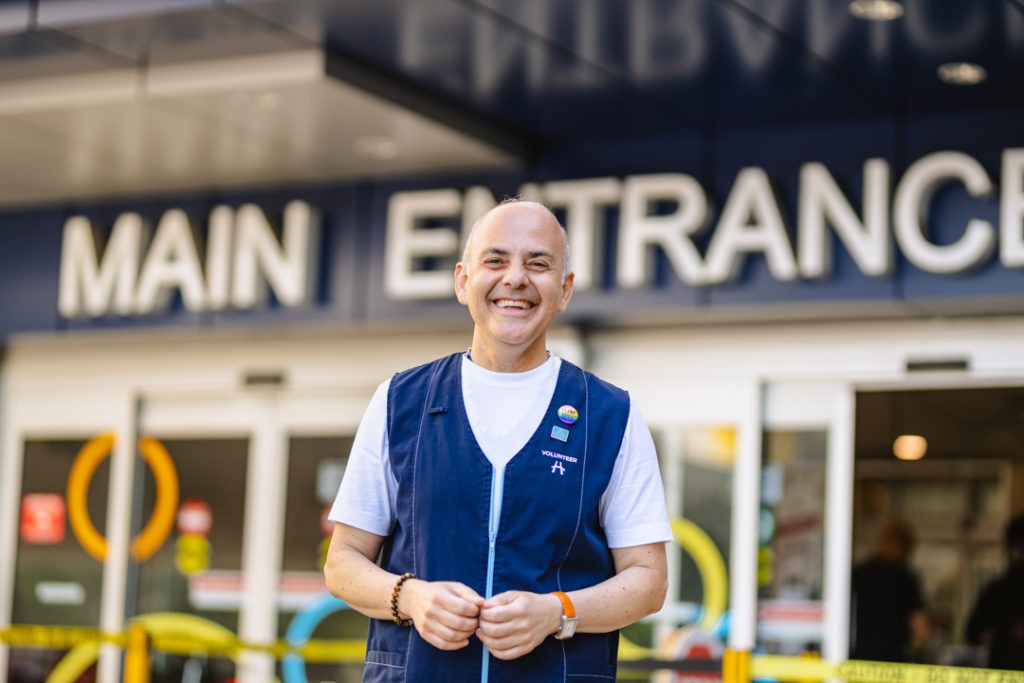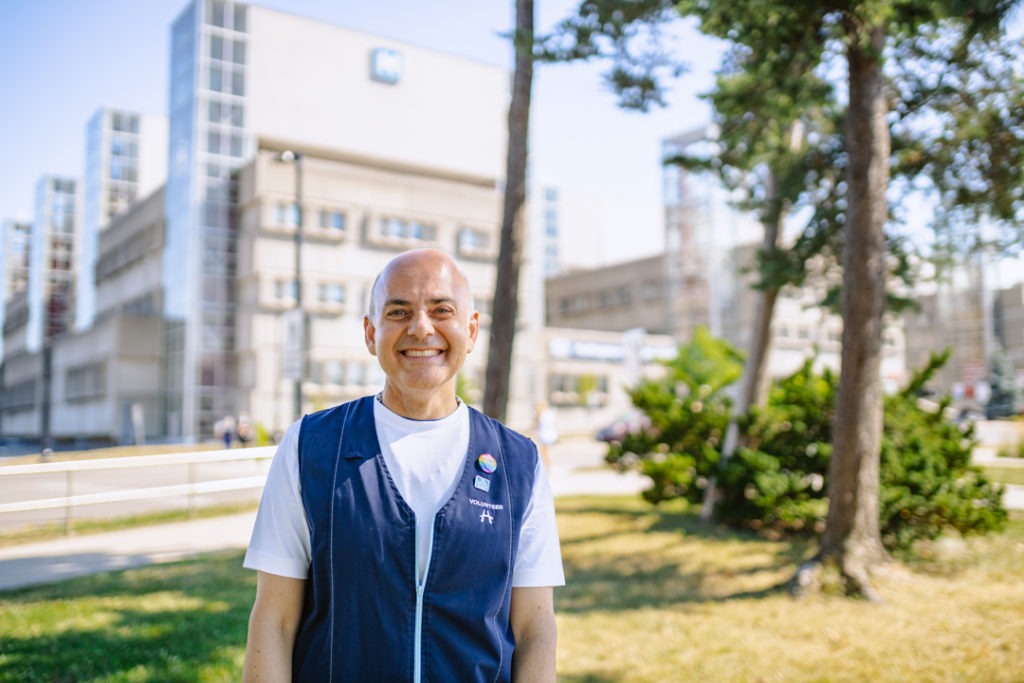
GPS volunteer is a friendly face at MCH
During Rasmi (Ras) Kokash’s volunteer orientation at McMaster Children’s Hospital (MCH), his volunteer coordinator said something that stuck with him: this is a place where you have a lot of emotions going on.
“Believe me, I live it every time I come here,” says Ras.
He learned that if he could reduce the level of stress a person experiences as they walk through the hospital doors, it can be both fulfilling for him, and much appreciated by the patients and families.
In April 2018, Ras began volunteering at MCH in the Guiding People Services (GPS) role, a part of the Volunteer Resources program. Like a GPS navigation system, these volunteers help people to and from their appointment if they aren’t sure where they are going.
With a work background in healthcare, Ras wanted to find a way to come back to this setting.
“Being in any discipline within healthcare gives you the opportunity to take care of people whether directly or indirectly,” he says. “And I am fascinated with kids. A part of me will always be a child.”
A travelling star
Ras moved to Canada in October 2017 as a researcher with McMaster University. He was born and raised in Syria and studied in Lebanon. He moved to Saudi Arabia, then Dubai, and finally France where he settled for 15 years. He started his career as a medical technologist working in a lab and transitioned to managerial opportunities, then onto the exciting world of business and management academia.
“Through the process I entered into entrepreneurship and strategy. I did an exchange in the USA and spent some time in Montreal. It has been quite a journey,” he says.
Culturally sensitive
Ras speaks French, Arabic and Italian which helps in his GPS role. He describes himself as being culturally sensitive, a skill learned from his travels.
“It’s always important to understand and pay attention to how people conduct themselves and it gives you an extended understanding of how you can interact and help,” he says.
He has learned a lot while volunteering, like how to get consent from someone with limited mobility before assisting them, or how to read people to determine if they are lost and want help or if they prefer to keep their distance.
“Every encounter here is a learning experience.”
Ras says his work as a volunteer has been instrumental in helping him integrate into Canadian society. “I am in the process of creating roots here in Canada. To build roots, you have to understand the social context and you have to contribute. One of the main ways to do that is volunteering.”
The little things
Ras remembers some special moments at MCH.
One time, a child wanted to ride one of the car-shaped wagons to his appointment but the family couldn’t find any. “I literally went on every floor and through the parking lot to find one,” he recalls. “You should have seen the smile on his face…It’s the little things.”
Another time, he met a teenager with down syndrome who really wanted a hug. “I gave her that affection she wanted. She was so happy and her parents were so happy. On their way out, they stopped me again.”
Although there is no date set yet, Ras is looking forward to volunteer activities resuming at MCH after being paused during the pandemic.
“At the end of the day, you just know that you were part of another person’s life momentarily, and it was a positive presence. And that’s wonderful.”

